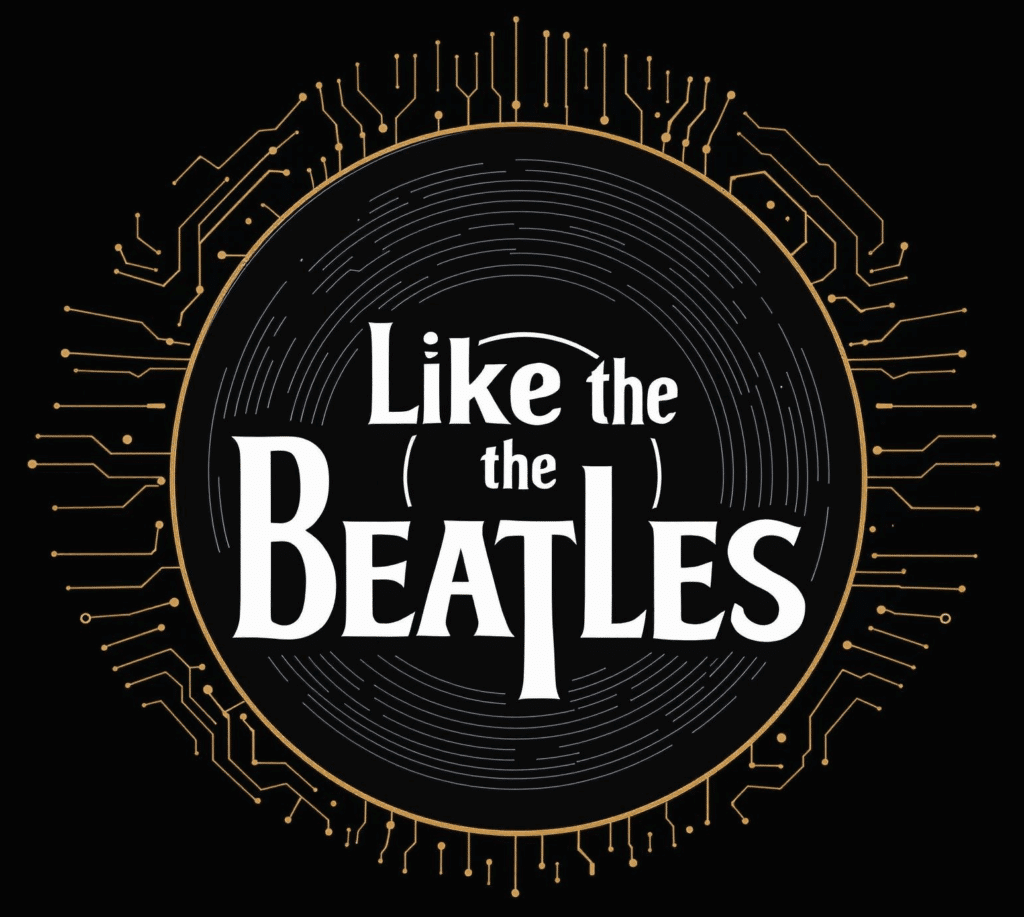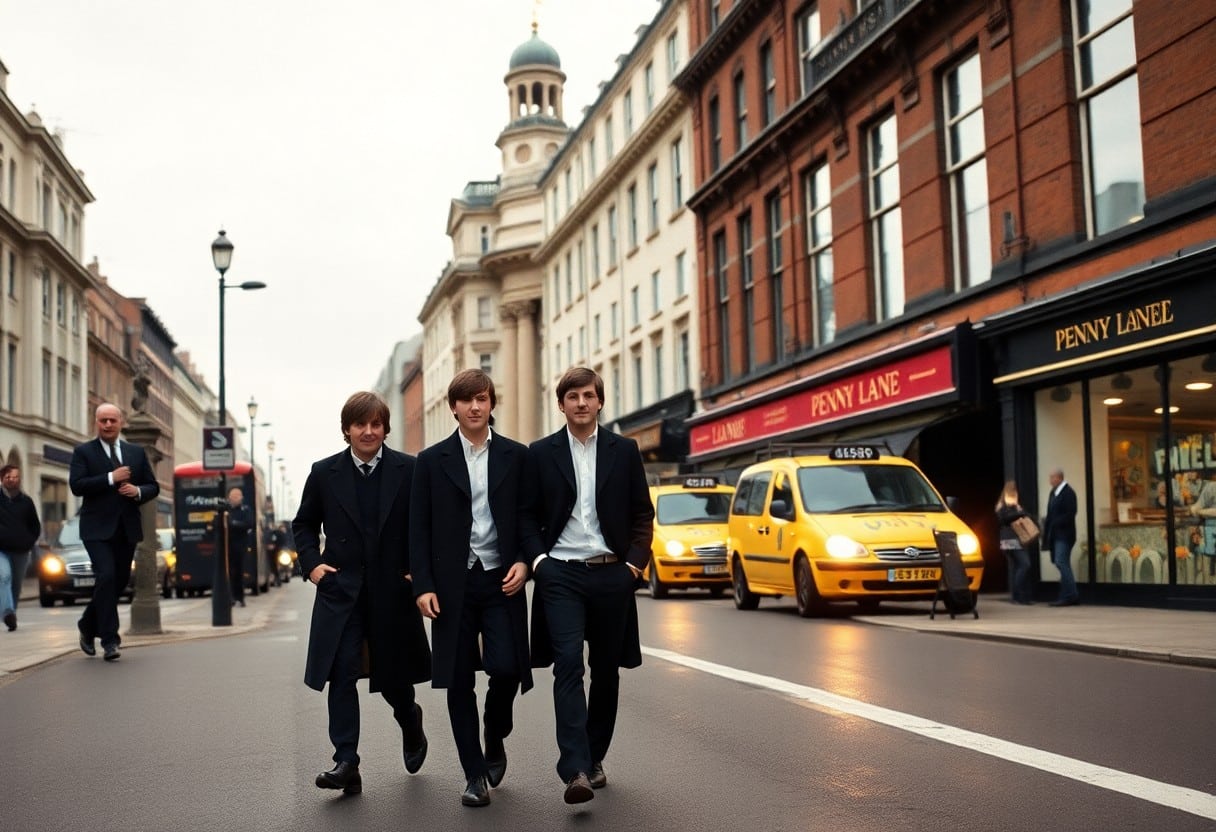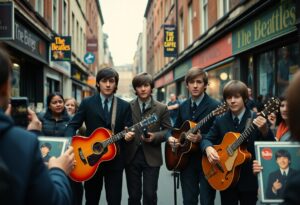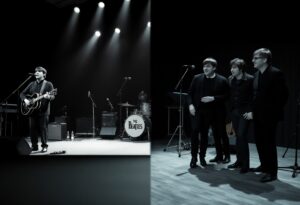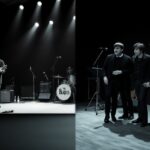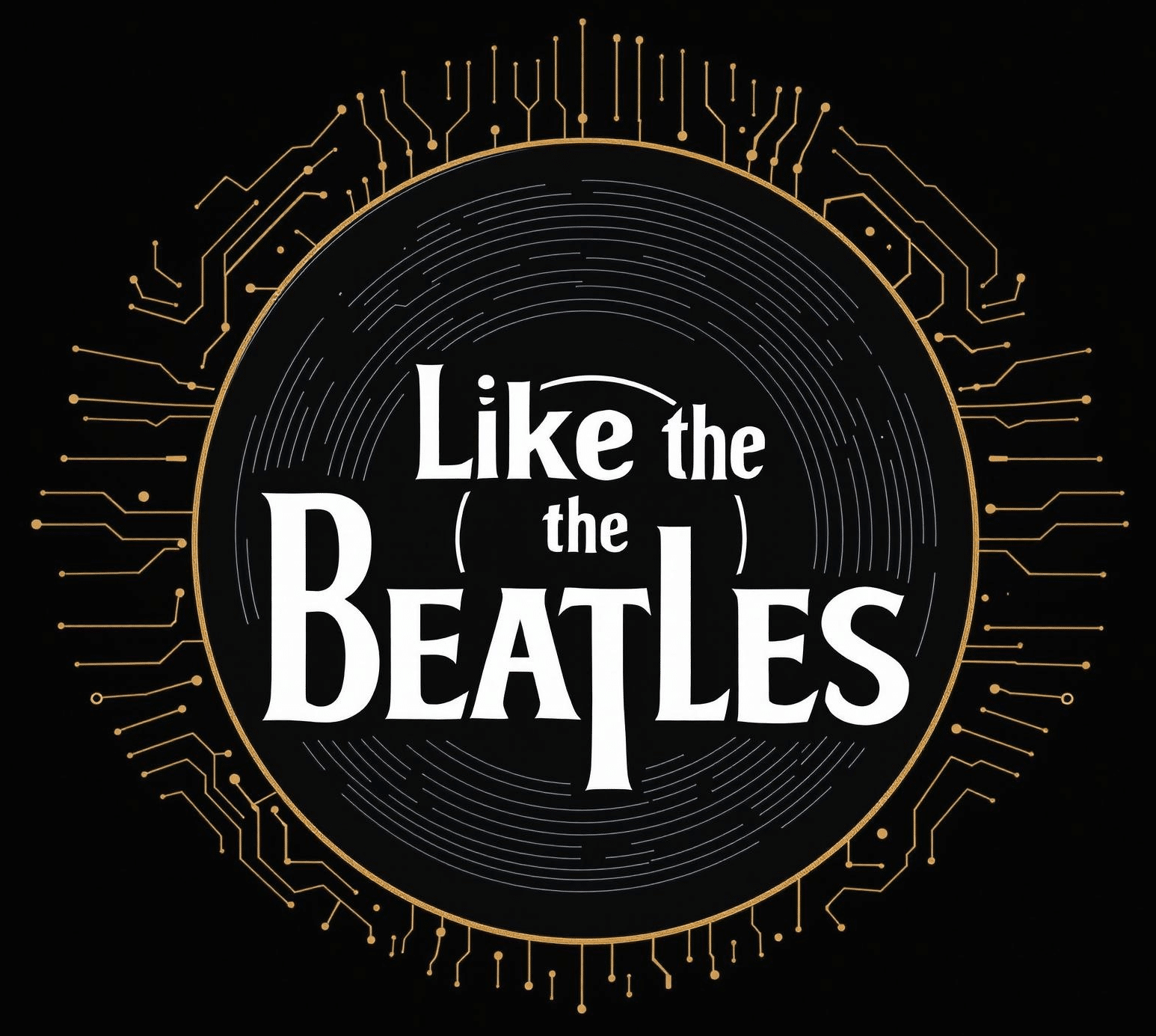It’s fascinating to explore the remarkable journey of The Beatles, a band that transcended music and reshaped culture. In this post, I’ll take you through eight unforgettable steps that define their evolution from a humble Liverpool garage band to a global phenomenon. You’ll discover how their innovative sound, iconic personas, and groundbreaking albums paved the way for a lasting legacy that continues today. Join me as I unfold this extraordinary story, highlighting the key moments and transformative experiences that helped shape The Beatles into pop culture legends.
The Early Days in Liverpool
To understand the essence of The Beatles, we must journey back to their humble beginnings in Liverpool. This vibrant city served as the backdrop for their formative years, where they honed their musical talents and developed a unique style. In smoke-filled clubs and local venues, they began to capture the hearts of fans, setting the stage for a monumental rise to fame.
Formation of The Quarrymen
Quarrymen was the early band formed by John Lennon in 1956, named after his school, Quarry Bank High. This group brought together young musicians who shared a passion for rock and roll, influenced by American legends like Elvis Presley and Chuck Berry. With skiffle music at its core, the Quarrymen played small gigs, laying the groundwork for what would eventually become a cultural phenomenon.
The Evolution into The Beatles
Among the changes that shaped their identity, the transformation from The Quarrymen to The Beatles was significant. Their lineup evolved, with members like Paul McCartney and George Harrison joining the band. Acceptance of their uniqueness allowed them to blend various musical styles, from rock to pop, and push creative boundaries. As they began performing more frequently and gaining exposure, their sound developed into something truly distinctive, intertwining harmonies and innovative songwriting. This growth marked the moment when they transcended local popularity and began to make waves beyond Liverpool.
The Beatles’ evolution was a journey of experimentation and collaboration. As they honed their skills, they incorporated elements from diverse genres and forged new paths. The addition of Ringo Starr on drums further solidified their dynamic sound. It was during these transformative years that they crafted tunes with relatable lyrics, drawing in audiences from all walks of life. This creative synergy, combined with their relentless drive, led to their breakout and established them as a formidable force in the music industry.
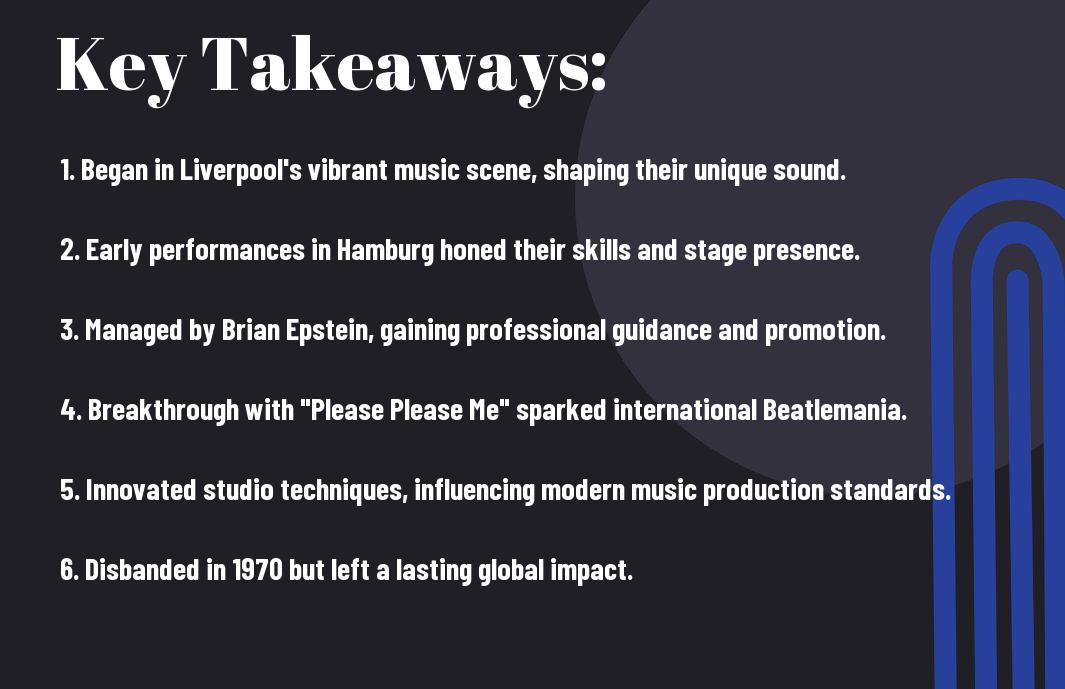
The Hamburg Influence
It was in the vibrant clubs of Hamburg that The Beatles began to hone their craft, immersing themselves in an environment rich with musical energy. The city’s nightlife provided them with a platform to perform live regularly, sharpening their skills and deepening their passion for rock ‘n’ roll. The intensity of these experiences laid a strong foundation for their future success, allowing them to experiment and grow as artists.
Early Performances and Growth
Any understanding of The Beatles’ journey must include their formative performances in Hamburg. From 1960 to 1962, they played at venues like the Indra and the Star-Club, where they were exposed to different styles and cultural influences. These gigs pushed them to develop their stage presence, songwriting, and musical versatility, ultimately shaping their unique sound.
Impact of the German Scene
Impact of the German scene on The Beatles cannot be overstated. It was here that they encountered a dynamic musical culture that forced them to expand their repertoire, adopt a fierce work ethic, and explore the raw energy of live performances. They performed up to ten hours a day, which not only tested their limits but also built unmatched camaraderie among band members.
Further, the German music scene introduced The Beatles to various genres, from rockabilly to rhythm and blues, enriching their musical palette. The intense pressure of performing in front of diverse audiences honed their abilities, making them more adaptable and innovative. This period was not without its dangers, as they grappled with the nightlife temptations and challenges of living abroad. However, these experiences were remarkably positive, forging the band’s identity and setting the stage for their legendary status in music history.
Breakthrough Success
After countless hours of rehearsals and performances, The Beatles experienced a breakthrough success that reshaped the music landscape. Their unique sound and infectious energy captivated audiences, leading to a series of chart-topping hits. This newfound fame propelled them from local clubs in Liverpool to global superstars, solidifying their legacy in music history.
“Love Me Do” and Chart Toppers
Love at first listen, “Love Me Do” marked The Beatles’ entry into the music scene, captivating listeners with its catchy melody and charming harmonies. The song quickly climbed the charts, paving the way for a string of subsequent hits that showcased the band’s innovative sound and lyrical depth, solidifying their status as icons.
The Beatlemania Phenomenon
On stage and off, The Beatles were met with overwhelming adoration, giving rise to a cultural phenomenon known as Beatlemania. Fans flocked to their performances, often creating chaotic scenes that overwhelmed venues and security alike. This intense fervor propelled them into a sphere of fame that few had ever experienced, drawing media attention and sparking a revolution in how rock bands engaged with their audiences.
This unprecedented enthusiasm for The Beatles marked a turning point in music history, as their concerts became a gathering of fervent fans that blurred the lines between celebrity and fandom. The sheer chaos surrounding their appearances often put their safety at risk, highlighting the influence they wielded. They inadvertently became not only musicians but also cultural icons, illustrating the power of music to unite and inspire generations. Witnessing this phenomenon firsthand was a testament to the transformative effect The Beatles had on popular culture.
Artistic Growth and Experimentation
All great artists evolve, and The Beatles were no exception. Their relentless quest for innovation propelled them from catchy pop tunes to pioneering sonic landscapes. As part of this journey, I highly recommend experiencing Liverpool Legends “The Complete Beatles Experience”, where you will witness their transformative artistry firsthand.
“Rubber Soul” and Shifting Styles
Across their career, The Beatles began to embrace a more introspective style, with “Rubber Soul” marking a significant departure from their earlier, more commercial sound. This album introduced intricate lyrics and varied instrumentation, signaling their readiness to experiment beyond the conventional pop music mold.
The Landmark “Sgt. Pepper’s” Album
Between their earlier work and the groundbreaking “Sgt. Pepper’s Lonely Hearts Club Band,” The Beatles pushed the boundaries of music and creativity. This album, often regarded as a turning point in popular music, showcased their willingness to embrace new ideas, innovative recording techniques, and a kaleidoscope of genres.
Artistic vision flourished in “Sgt. Pepper’s,” where The Beatles combined orchestral arrangements, unconventional song structures, and vivid storytelling. The album represented a cultural phenomenon that not only redefined music but also reflected the psychedelic spirit of the 1960s. As you immerse yourself in this eclectic masterpiece, you’ll discover how The Beatles established new artistic avenues that influenced countless musicians and shaped the evolution of popular music forever.
International Impact
Unlike many bands of their time, The Beatles transcended borders, shaping global music and culture. Their innovative sounds and artistic approaches not only influenced countless artists but also redefined popular music as a whole. Through their groundbreaking albums and unforgettable performances, they captured the hearts of millions, leaving a legacy that resonates worldwide even decades after their last performance together.
Crossing the Atlantic: The Ed Sullivan Show
About their famous arrival in America, The Beatles made a significant television debut on The Ed Sullivan Show in February 1964. This appearance marked the beginning of Beatlemania in the U.S., with over 73 million viewers tuning in. Their charming personalities, innovative music, and captivating performances captivated the American audience, cementing their status as a global phenomenon.
Global Tours and Cultural Influence
Tours played a pivotal role in The Beatles’ global influence. Considering these tours, they not only showcased their music but also sparked a cultural revolution worldwide. The band’s concerts, often attended by wildly enthusiastic fans, created an extraordinary atmosphere and a sense of unity among diverse audiences. With millions of fans screaming and partaking in their shows, Beatlemania became a phenomenon, showcasing a new era in music. Cities began to pulse with their energy, and local cultures fused with their distinctive style in a way that was both reverent and transformative. The Beatles inspired a generation to embrace change, reflecting the political and social dynamics of the times.
Challenges and Changes
Not everything about The Beatles’ rise was harmonious. As they earned global fame, they encountered numerous obstacles that tested their resilience and unity. Internal conflicts, media scrutiny, and the pressures of success complicated their dynamic, reshaping not only their music but also their personal relationships. These challenges ultimately became a defining part of their legacy, showcasing their ability to adapt and innovate even in the face of adversity.
Internal Dynamics and Creative Differences
With each Beatle bringing unique influences and perspectives, creative differences often sparked tension within the group. This internal struggle led to both explosive arguments and groundbreaking innovation. Their clash of ideas not only taught me about the complexities of collaboration but also highlighted the importance of balancing individual expression with group cohesion.
The Transition Beyond Touring
Changes in The Beatles’ trajectory arose after their decision to stop touring in 1966. This pivotal moment transformed their approach to music, allowing for more experimentation and studio innovation. The pressure of live performances had taken a toll, revealing a tendency toward burnout. With studio sessions becoming their primary focus, I saw them develop multifaceted soundscapes, further solidifying their artistic legacy.
Challenges from this transition weren’t negligible; the move left fans craving live performances while also prompting feelings of isolation within the band. However, this new phase led to groundbreaking albums like *Sgt. Pepper’s Lonely Hearts Club Band*, showcasing their innovative sound and the artistic depth they achieved through studio work. I admire their decision, as it allowed them to explore new creative avenues, paving the way for their enduring influence in music and culture.
To wrap up
So, as I reflect on The Beatles’ incredible journey from Liverpool to their lasting legacy, I realize that each step played a vital role in shaping not just their music but also the cultural landscape of our world. From their humble beginnings to their groundbreaking innovations, their story teaches us the importance of creativity, collaboration, and resilience. I encourage you to explore their journey further, as it’s a testament to the power of passion and the impact that a small group of individuals can have on generations to come.
